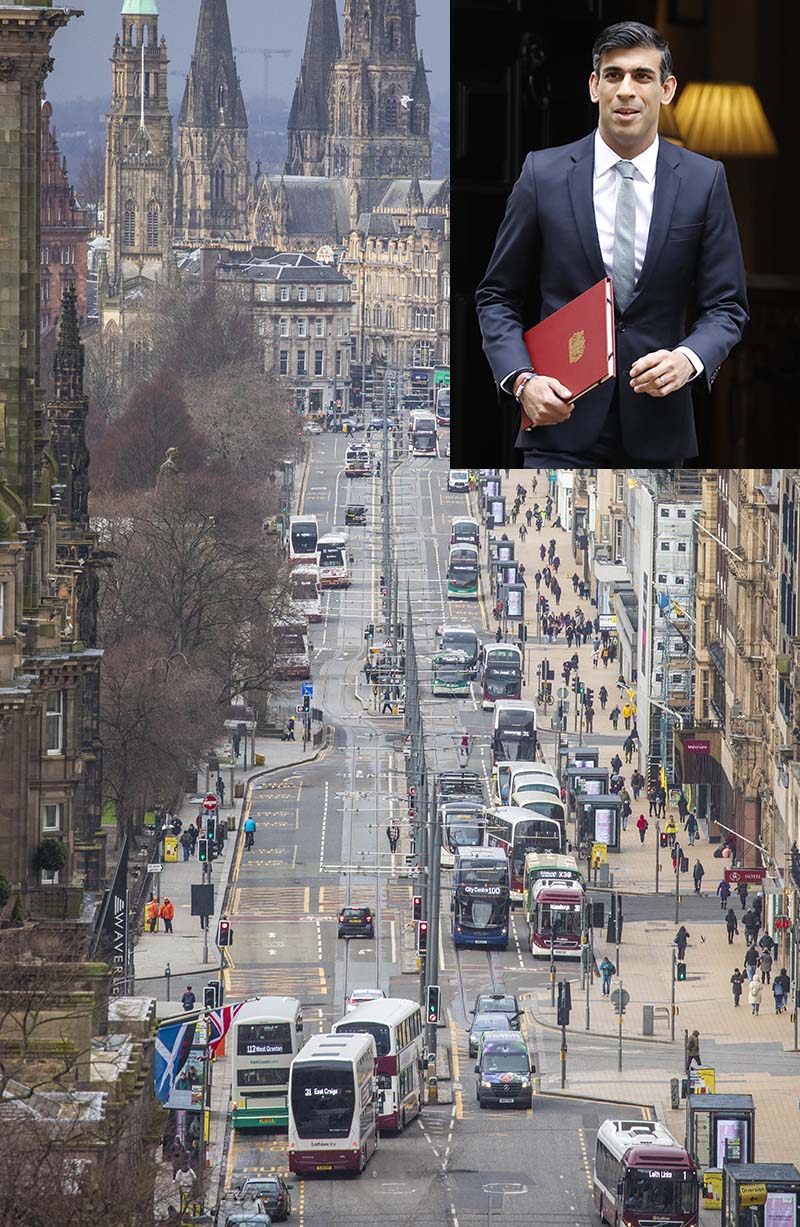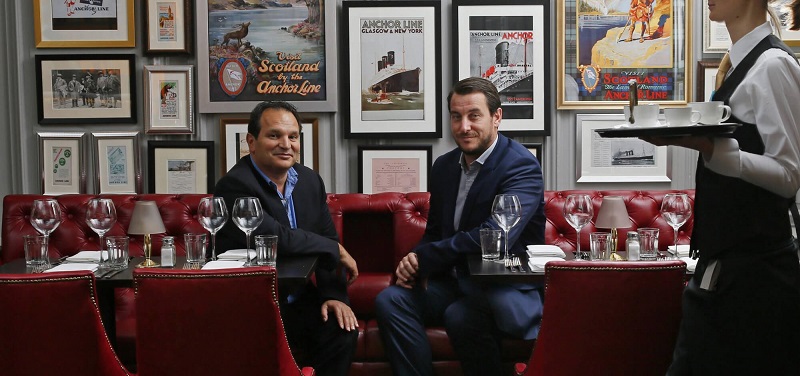
The UK Government’s support packages are proving just the business for a third of Scotland’s workforce and are key to supporting, protecting and creating jobs across the country.
The UK Government continues to offer Scottish businesses a “firm” commitment.
A considerable cash splash, worth more than £2.3 billion, has allowed employers affected by the pandemic to recover post-lockdown.
The Bounce Back Loan Scheme, providing UK Government guaranteed loans to small and medium-size operations, has supported 65,000 such enterprises in retail, construction and hospitality sectors.
The UK Government has also offered deferred VAT bills and increased support to individuals through Universal Credit.
At the end of July 936,500 jobs – a third of the country’s workforce – were being backed by the UK Government’s job support schemes, signalling an increase of 45,000 since the end of June.
Protecting jobs
- The UK Government is supporting a third of Scotland’s workforce, 936,500 jobs, 45,000 more since June end.
- £2.3 billion-plus UK Government loans to 65,000 Scottish firms supports furlough and self-employed schemes.
- The UK Government has also deferred VAT bills and increased support to individuals through Universal Credit.
- In addition, the UK Government has allocated additional £6.5 billion direct funding to the Scottish Government.
- The UK Government cut VAT to 5% to boost tourism.
- Eat Out to Help Out adopted by 3,100- plus Scottish sites.
- New £1,000 job retention bonus helps retain staff while £2 billion Kickstart scheme aims to create thousands of jobs for young people.
Chancellor Rishi Sunak said: “I’m proud that we have supported more than 65,000 businesses in Scotland through our loan schemes.
“We are committed to continuing to support them to bounce back and succeed through the measures set out in our Plan for Jobs.”
The UK Government allocated to the Scottish Government an additional £6.5 billion direct funding. The UK Government also launched the Eat Out to Help Out initiative with more than 3,100 restaurants in Scotland signing up, including independent eateries as well as family favourites such as Pizza Express, Costa Coffee and Nando’s.
The scheme saw half price discounts on meals in participating restaurants from Monday to Wednesday throughout August.
Scottish businesses have been able to put employees on furlough – a period of temporary leave – while applying for a government grant to cover 80 per cent of those workers’ usual monthly wage costs, up to a cap of £2,500 per month, continuing until October.
September sees the UK Government pay 70 percent of wages up to a £2,187.50 limit while, in October, the government will pay 60 percent of wages up to a cap of £1,875.
‘Cash support has saved our restaurant chain’
UK Government support has proved a recipe for success for Scotland’s largest independently owned restaurant chain.
Di Maggio’s Restaurant Group is a family business founded by Joe Conetta and nephew Mario Gizzi in 1983 with the creation of Glasgow institution Di Maggio’s.
The company operates 18 restaurants in Glasgow, Edinburgh and Aberdeen with five food court outlets in Scotland, Belfast and Manchester.
Other brands include Café Andaluz, Amarone, Barolo, The Anchor Line, Atlantic and Cadiz, employing overall 1,000 staff.
“We would not have survived without UK Government support,” confirms co-manager Tony Conetta.
“Without our staff, we would not have a business. Without the financial support from the government, 100 per cent we would not have survived. The help was generous.
“We employ 1,000 people, 40 percent of our income goes on wages. Many of our employees are main breadwinners for their families. If you turn off that income, you cannot pay wages.
“UK Government support helped people pay their mortgages and food bills.”
Supporting business. Find out more on the UK Government website here or tap the logo below.

Enjoy the convenience of having The Sunday Post delivered as a digital ePaper straight to your smartphone, tablet or computer.
Subscribe for only £5.49 a month and enjoy all the benefits of the printed paper as a digital replica.
Subscribe

